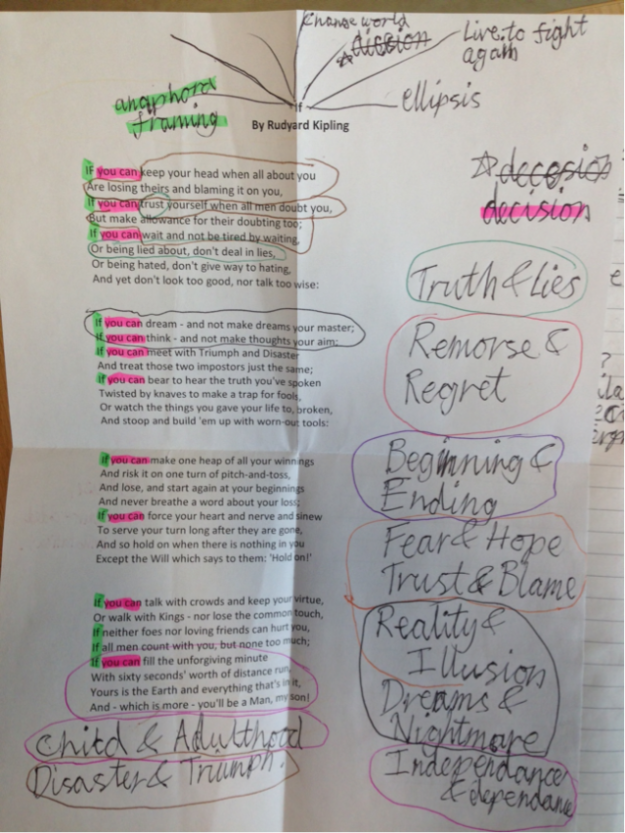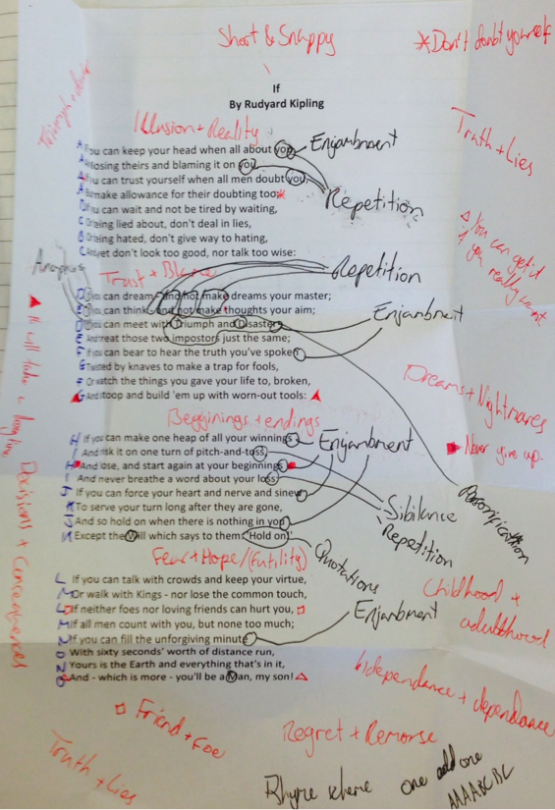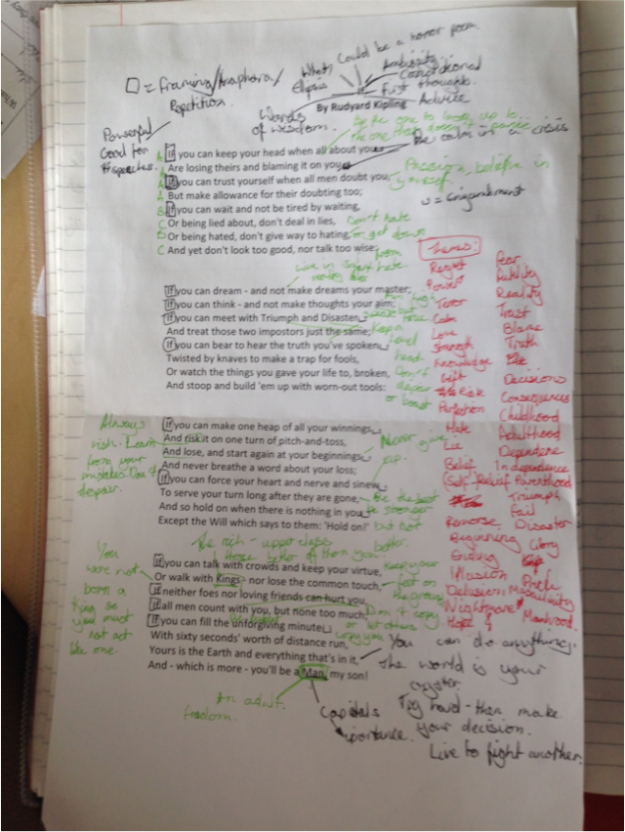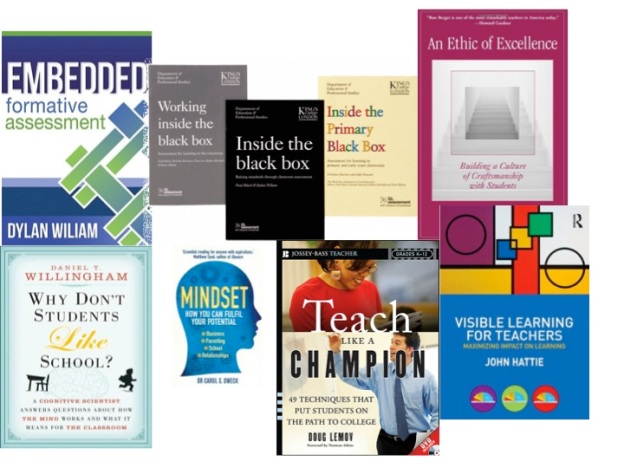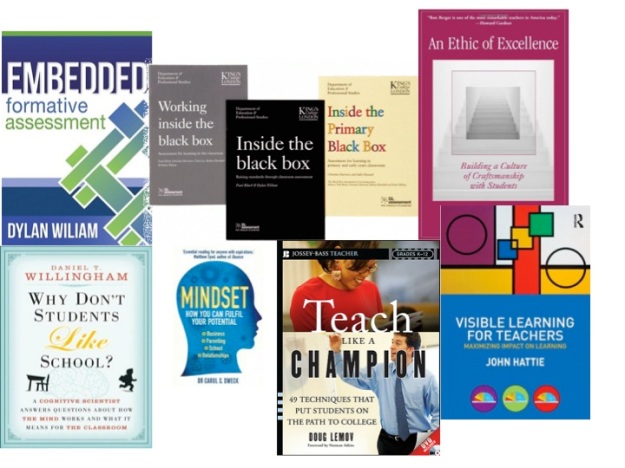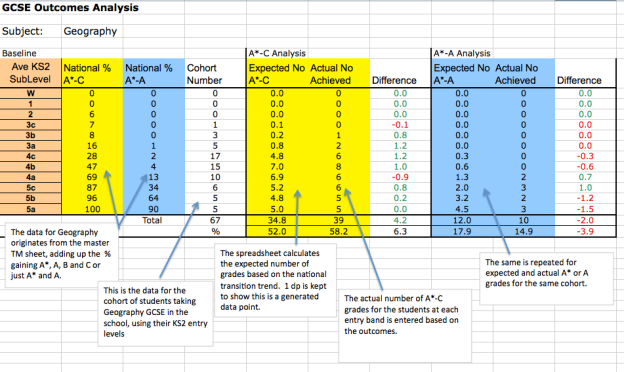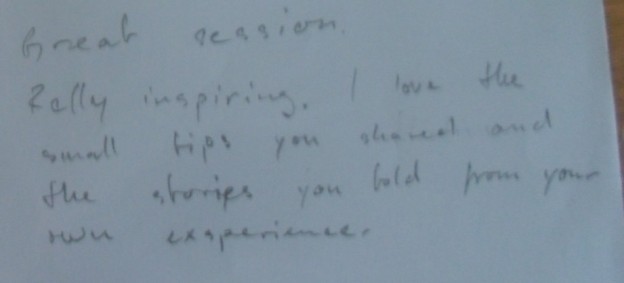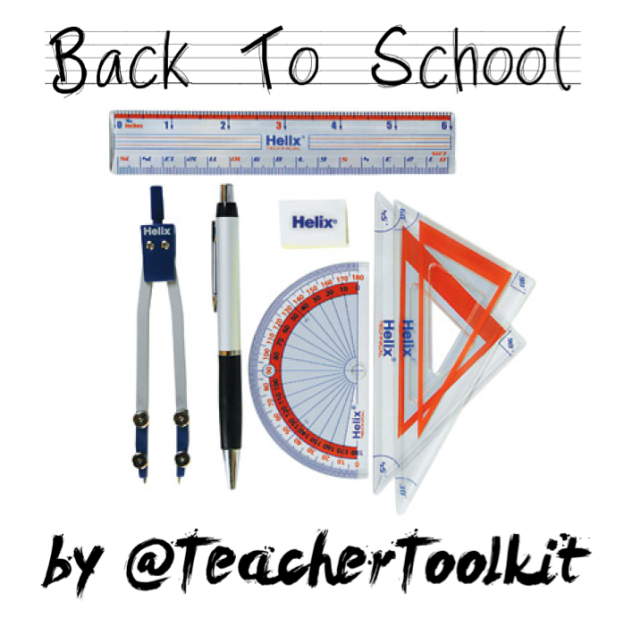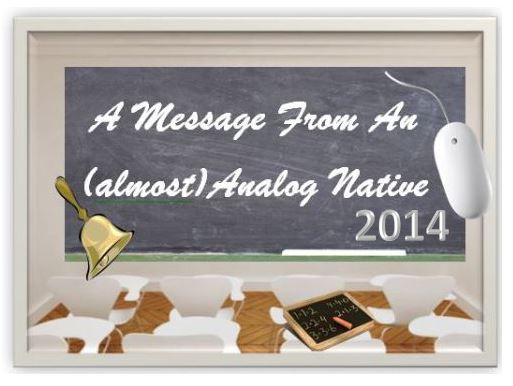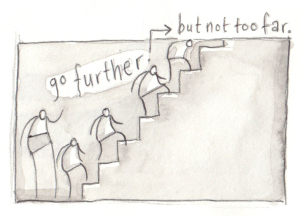Dewdrops on a dragonfly
Like dewdrops on a dragonfly, annotations are microscopic, fragile and beautiful. I’ve come to believe that they’re the most important secret for teaching literature; a hidden treasure trove, waiting to be discovered. Here’s what I think is precious about them:
- Annotations are the best way for pupils to analyse texts in detail
- Annotations are an instant way for teachers to see pupils’ thinking
- Annotations allow pupils to return to poems and remember ideas for comparisons
Close analysis
When pupils are taught explicitly how to annotate, they can go much deeper into texts, beyond surface level ideas. For instance, here are three pupils’ annotations of Rudyard Kipling’s poem If:
You can see how much of an advantage small, neat handwriting is! The detailed precision that these Year 8 pupils can achieve through annotating and colour-coding themes, rhyme scheme and poetic devices is very powerful…
View original post 368 more words


